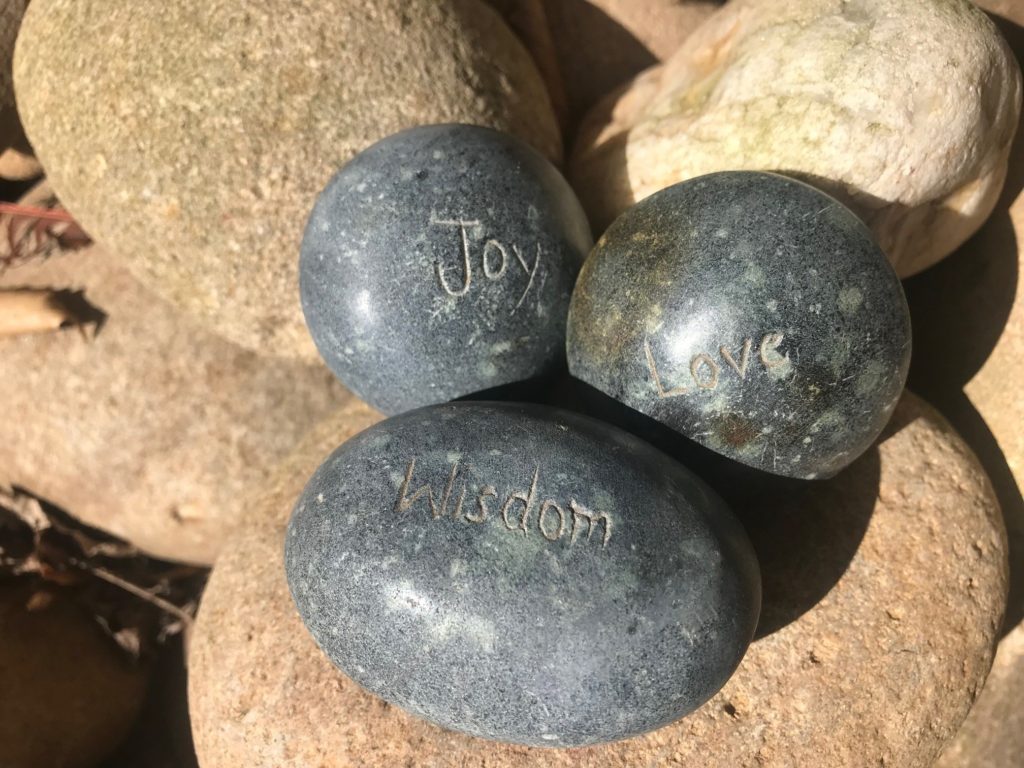Homily for the 5th Sunday of Lent
Deacon Scott D. Gilfillan

In the gospel, there is a story of a woman who is caught in act of adultry. (Jn 8:1-11) A vindictive mob drags her in before Jesus and asks if it would be OK to stone her. For emphasis, they might even be holding their own stone, one that is just the right size for throwing. After suggesting that the one without sin be the first to throw a stone, Jesus does something odd. “He bent down and wrote on the ground.” In response, the crowd did something odder. “They went away one by one.” What exactly did Jesus write in the sand? The gospel doesn’t say, and there has been centuries of speculation. But to disperse the crowd it might have simply been this: “Put down your stones.”
To the scribes and Pharaisees, he would be referring not to just the literal stones, but also stones of anger and vengeance, or stones of self-righteousness and aggrandizement, or stones of lust and violence.
Just like the crowd, we too carry around some stones. Some of these stones have specific names. The top three might be pride, envy, and anger. The next three being greed, gluttony, and lust. Then a little sloth to round out the ‘seven deadly’ stones. These stones not only hurt the people around us, they hurt God, and in the end they hurt us. They weigh us down so we can’t get up. They pin us in impossible places. They restrict our true freedom, trap us in a corner, and seal us in a tomb of our own making.
How do you get rid of these stones? By practicing the virtues. To continue the metaphor, you can deploy the eroding drip of patience, the rock-splitting blast of diligence, or the polishing grit of forgiveness… to name a few. Or you could imagine replacing these destructive stones with those depicted in the picture: stones of love, joy, wisdom and more.
In addition to these ‘seven deadly’ stones, we can also go through life carrying some very heavy stones, stones of shame, sadness, and regret. These cause us to double over by some weighty pain of the past, or they anchor our sagging spirit in the present, or shatter our hope for that our future won’t be so bleak. So many large, immovable stones, limit us in what we can do and cut us off from the joys that come from being alive in the here and now.
Oftentimes, we try to be rid of these stones. We surmise that hurling them at another will eliminate the cause of this persistent pain. It’s a classic scape-goating strategy. Sagging under the heavy weight of guilt and regret, we try to blame life, the economy, our parents, our children, our boss or our spouse, but to no avail. Instead of finding the next new target to hurls our woes, Jesus says simply, “Put down your stones.”
Stones can limit options. If you’re using one hand to carry a stone, or maybe both hands to carry two stones, you can’t use those hands for other purposes. Carrying stones tire the arms so you have no strength to give a comforting hug. If you’re clutching a stone, you’re not able to use your fingers to point the way to truth and goodness and light. If you’re holding onto stones, you can’t effectively offer a welcoming gesture, wipe the tears off of the cheeks of the broken hearted, or hold the hand of someone who needs some help. Jesus has much better use of your hands than to carrying these stupid stones around. He is telling you, “Put down your stones.”
If you’re carrying stones, it makes it hard to see the incredible possibilities that come from Jesus. The woman in the gospel was dragged in front a crowd, publicly humiliated and shamed, and about to have people throw real stones at her until she fell down and died from the cumulative, concussive force of one stone after another after another striking her sparsely clad body. It’s a horrific punishment. All of her hopes and dreams and acts of kindness were to be blotted out by shame and humiliation and buried in an avalanche of rock. A few moments later, from the depths of her great despair, she find herself miraculously alone with Jesus who says, “Go.” Put down your stone of adultery, and don’t pick it up again. This in an incredible reversal of fortune! From the pit of humiliation and death, she receives a new identity and chance at life. All from an invitation from Jesus to put down her stone.
The woman caught in adultery experienced the immense possibilities of living a life free of these wicked stones. Jesus says the same to you, “Go. Put down your stones.”
What stone do you most need to drop today?
